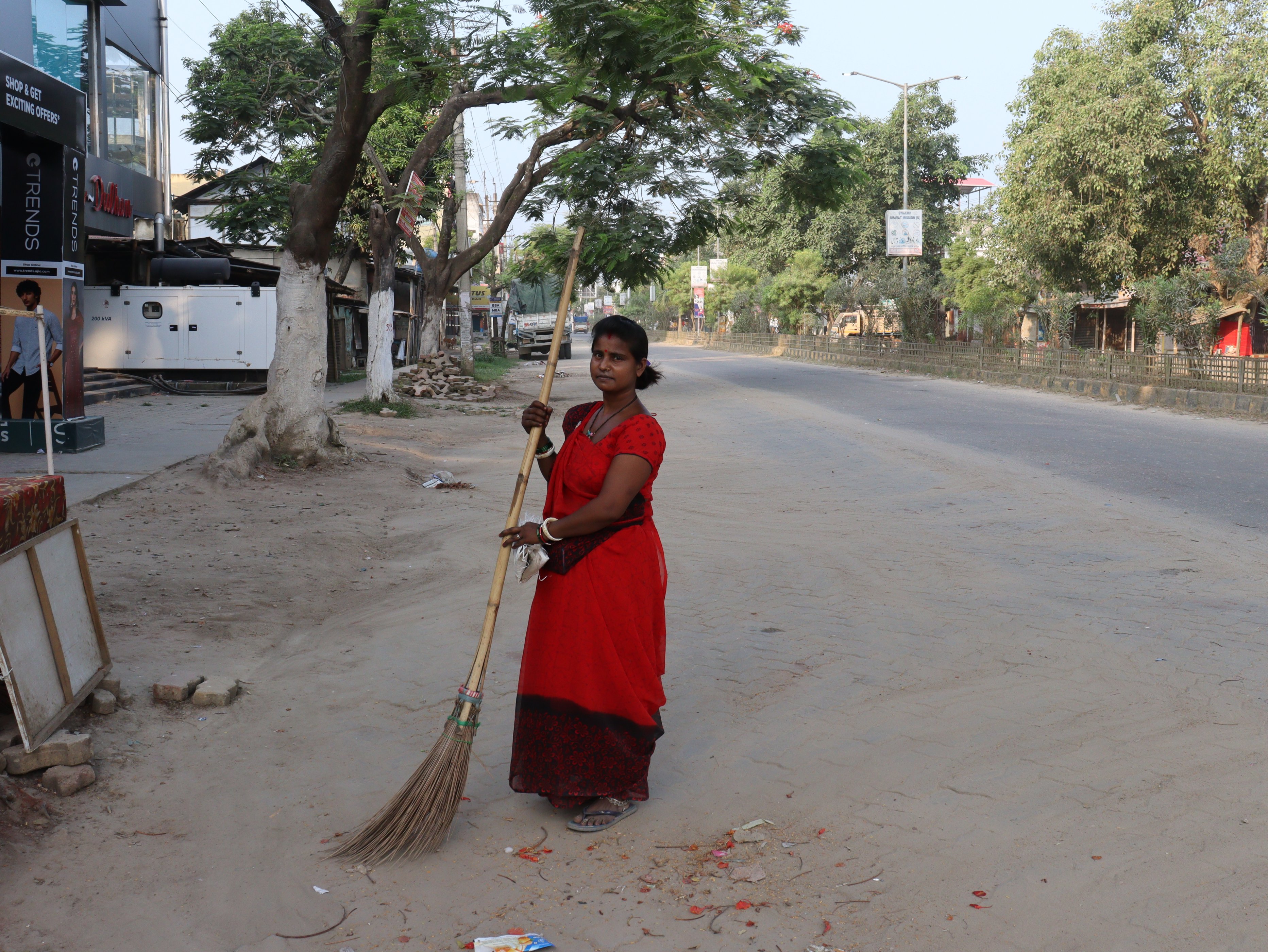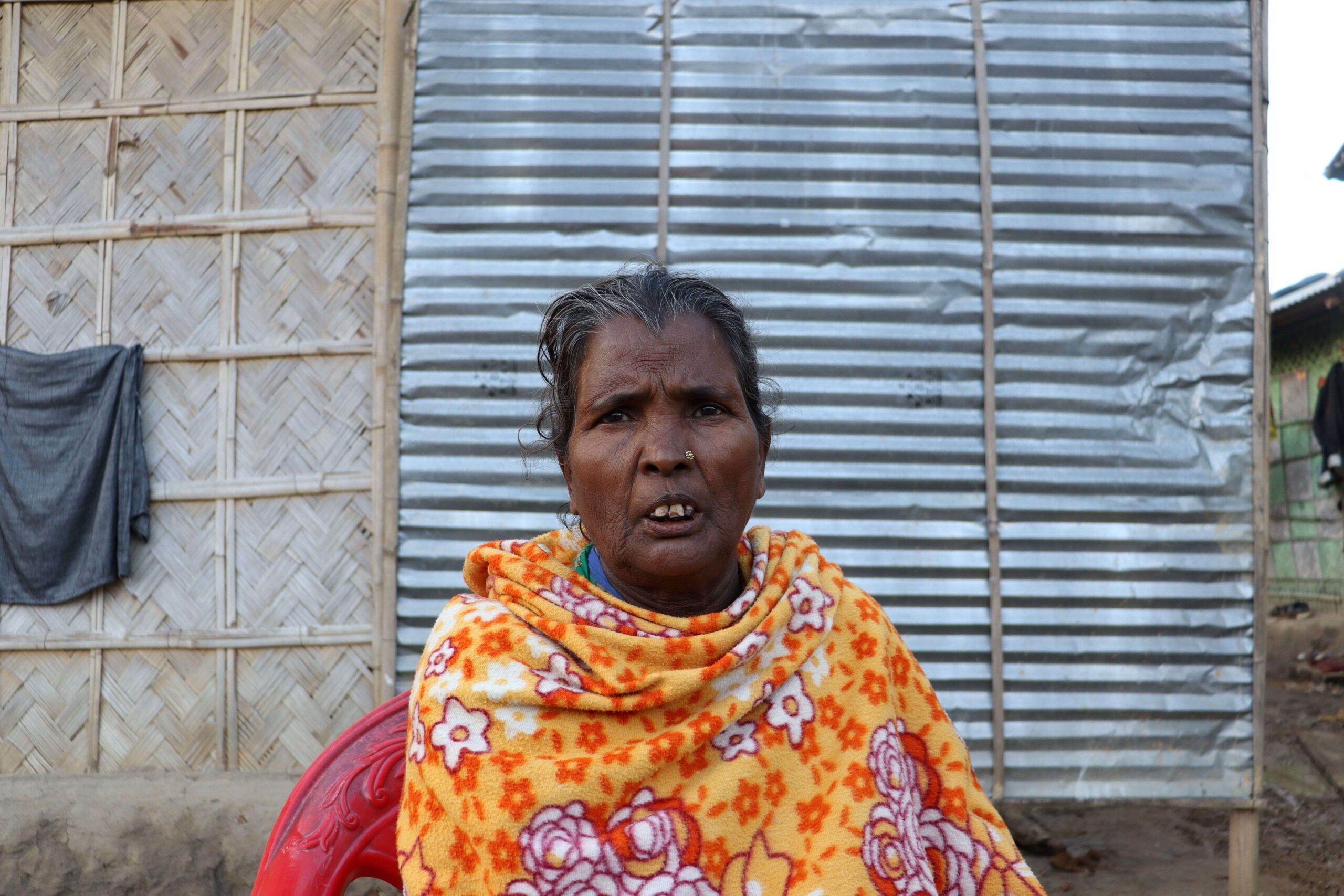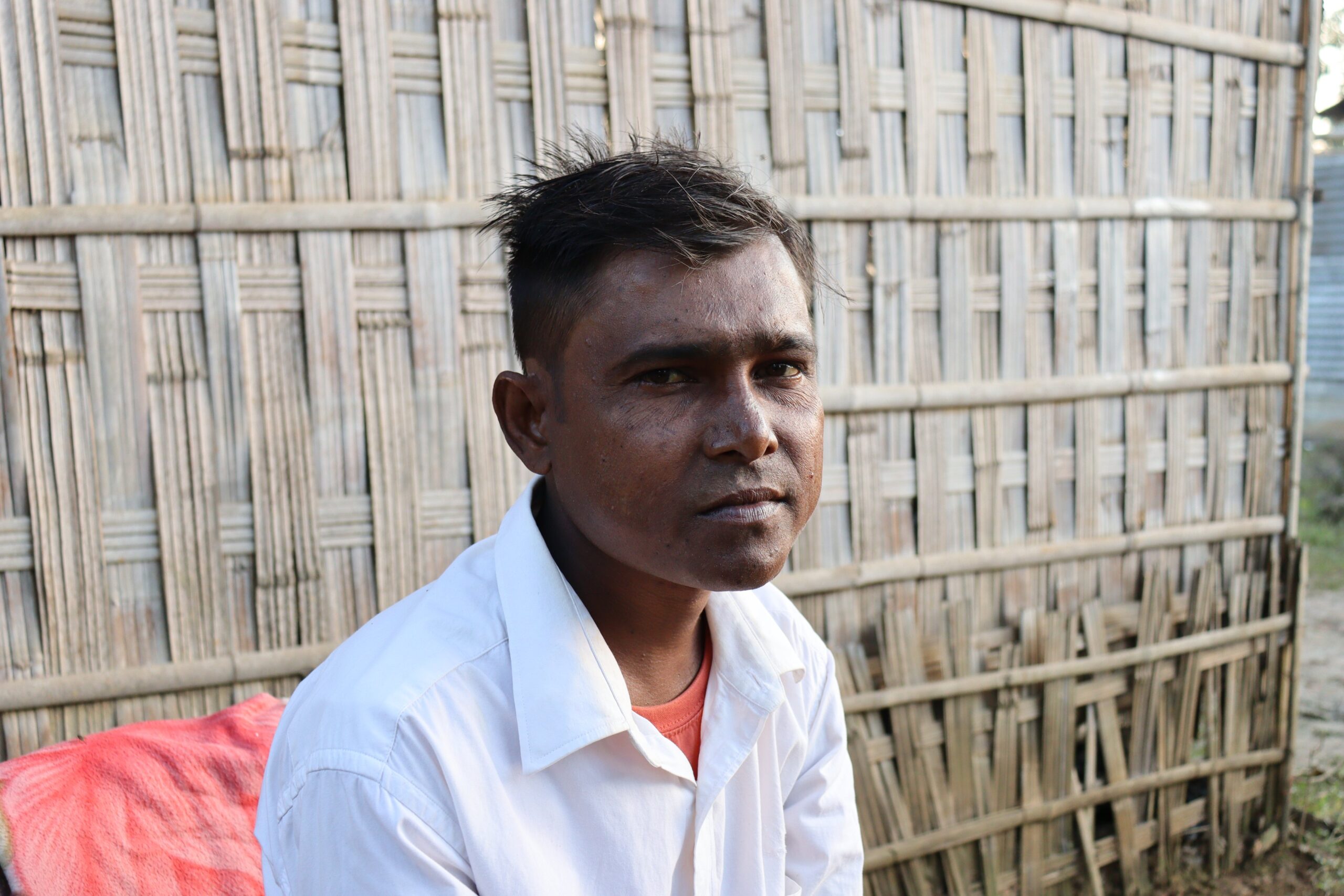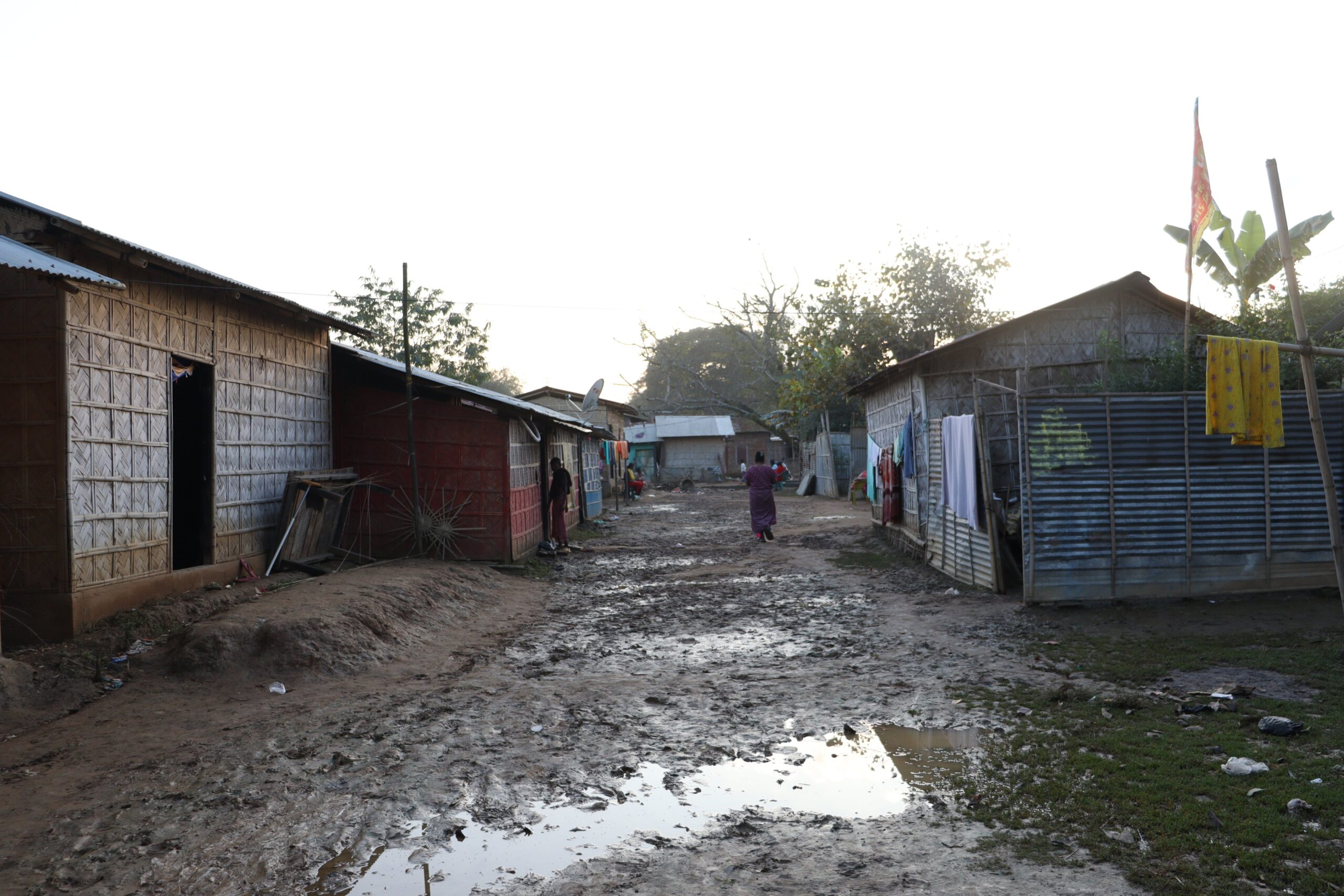Meet the 'Harijans' in Assam Sweeping a Small Town for Generations

Arshad Ahmed, TwoCircles.net
When the clock ticks 5 a.m., 32-year-old Savita gives one more look in the mirror, fixes her bindi (a red dot on the forehead), and leaves home in a hurry for work.
She is a municipality sweeper in Hojai town in central Assam’s Hojai district.
“This is what I have been doing for the last 15 years,” she said, her face beaming with pride.
Savita is a Basfore, a Dalit, a nomenclature for the lowest Hindu caste, whose family lives on the town’s outskirts in a squalid slum known as ‘Harijan colony’, home to about 45 other Dalit Basfore families, most of whom are employed as sanitation workers for the Hojai Municipality or in the town’s private hospitals and clinics.
“Our whole generation, and the generations preceding us have spent their lives working as menial workers in the town,” Savita said.
In India, the sanitation workforce is predominantly made up of the Dalits. “The case for Harijans is no different in Assam,” Chandan Suklabaidya, a Silchar-based Dalit researcher, told Two Circles.
“Their segregation based on their caste coupled with little economic opportunities forces them to follow in their previous generations,” he added.
From Skilled Craftsmen to Cleaners
The Bansfores, also spelled Bansphor or Basor, are a lower-caste Hindu community of people who trace their origins back to mainly Uttar Pradesh as well as in parts of Bihar and Madhya Pradesh.
As traditional skilled artisans who make products out of Bamboo, meaning Baans in Hindi, the community received the Basfore title as a collective recognition for their close association with Bamboo craft.
Data available from the state government showed that over 16,300 Basfores are living in Assam as per the 2011 census. However, Bhim Basfore, who heads the Safaikarmi Anuschit Jati Student Union — a Harijan rights group in the state, says there are about 2.5 lakh Harijan Basfores living in Assam.
However, few Two Circles spoke to could recount their ancestral migration to Assam. “Even his [Amit Basfore’s] family wouldn’t be able to explain when they settled here,” Savita said, who is married to Amit Basfore.
Shedding light on the community’s migration, Bhim Basfore says the community traces its first migration to Assam in 1838 under colonial British rule as migrant workers along with the Adivasi tribes from present-day Jharkhand. “But while the British engaged the Adivasis in the Tea estates, they forced the Basfores to work as sanitation workers,” he said.
He also lamented how indentured sanitation work forced them to move away from their cultural roots.
When Two Circles visited the colony in November this year, it witnessed the declining Bamboo craft in the settlement. This was reminiscent of the community’s vanishing art in other parts of India.
“The only time we make things out of Bamboo is during the Chhath Puja to sell in the market for money,” said Savitri Basfore, showing a pile of bamboo tokris (Baskets) that went unsold.
Premature Death in the Community
One peek through Savita's colony reveals that the majority of the colony members, numbering over 250 people, are youngsters. According to the residents, men in the slum die early, some in their mid-40s and some even before retirement age. You will barely see any men and women in the colony surviving beyond age 60, Mithu Basfor, a colony member, said.
According to a study published by the Center for Policy Research (CPR), a policy think-tank in India, the average life expectancy of sanitation workers is 40-45 years against the national average of 70 years.
The reason, Mithu Basfore, explained is prolonged diseases that the sanitation workers succumb to because of working under harsh and hazardous conditions from a very early age.
A study published by Madras Medical College said that nearly 69% of corporation sweepers suffer from multiple health issues, Times of India reported in 2018.
“Last year, we had a man aged 50-55, who died due to Tuberculosis (TB),” Mithu Basfore said, adding the colony has as many as 20 people who are suffering from terminal disease.
The lone surviving elderly person in the colony, Biyepi Basfore, a woman in her early 60s, feels death is always knocking at their door. “The women live a little longer here as we do not have to do the work men do. But we know we will all die soon. That's how things happen here,” she said.
[caption id="attachment_449475" align="aligncenter" width="2560"] Biyepi Basfore is the only elderly person survining in the Harijan colony where early deaths for the sanitation workers due to hazardous working conditions is frequent. Arshad Ahmed I Two Circles[/caption]
Biyepi Basfore is the only elderly person survining in the Harijan colony where early deaths for the sanitation workers due to hazardous working conditions is frequent. Arshad Ahmed I Two Circles[/caption]
'You Sweeper, Don't Touch This'
Sunil Basfore, 26, is a fourth-generation sweeper in his family. Much of his day is spent visiting one house after another in the town’s Bengali neighbourhoods.
But when he returns home from work, he does not always have good stories to tell.
He said casteist slurs are still hurled against him when he visits the Bengali-speaking community for work.
“When we go to clean their houses, they say, ‘You sweeper, don’t touch this, don’t touch that’,” he recalled.
Anil Basfore, who overheard Dilip discussing the Bengali community’s attitude towards them, added that there are mohallas (colonies) in the town where hotel owners still do not let them enter the hotel’s premises. “They keep a separate cup for us and our children. We never question it. We have accepted our fate this way,” he said.
Suklabaidya, the researcher, opines that Assamese societies are typically steeped in caste pride and hierarchy. “Caste in Assam is a low-key political discussion as ethnonationalism takes precedence over other political discourse,” he said.
[caption id="attachment_449474" align="aligncenter" width="2560"] Anil Basfore a sanitation worker for 3 decades. Pic Arshad Ahmed/ Twocircles[/caption]
Anil Basfore a sanitation worker for 3 decades. Pic Arshad Ahmed/ Twocircles[/caption]
Government Negligence and Children Dropping Out of School
As sanitation workers under the municipality, the employees are paid between 4800 to 8700 rupees per month. The amount paid to them is an honorarium and does not come under the government’s pay grade as they are not regularised workers under the municipality, said Gias Ali, General Secretary of All Assam Civic Bodies Workers Federation.
For the community members involved in sanitation, the amount they receive is too little for them to alleviate their penury. “How do you expect me to run a household in 4800 rupees?” Dablu Basfore asked, who is a Municipality cleaner in the town.
The abject poverty has also forced children and teenagers from the colony to drop out of school. 17-year-old Dhrup Basfore quit school three years ago and now works as a cleaner in a private hospital.
So is the case with 11-year-old Pintu Basfore who does not go to school anymore.
“Without going to school, I will never be a big man,” Pintu said.
Ali says few Municipalities in the state have been regularised and of the 2000 safai karamcharis including cleaners and sweepers that work under these Municipalities, only a small number receive regular salaries.
[caption id="attachment_449477" align="aligncenter" width="2560"] Home to about 45 families, the Harijan colony is in a shambles with its people living in pitiful conditions. Arshad Ahmed I Two Circles[/caption]
Home to about 45 families, the Harijan colony is in a shambles with its people living in pitiful conditions. Arshad Ahmed I Two Circles[/caption]
A Hojai Municipality official who requested anonymity said it’s because of the state government's lack of fund allocation that their job has not been regularised as government employees.
Calls and texts to Kulashree Nath, director of Welfare of Scheduled Caste, did not elicit a response. The story will be updated if and when she responds.
Bhim Basfore told Two Circles that the government has always neglected the Basfores — a Scheduled caste community in Assam — and deprived them of government schemes. “The Harijan community has been treated as an othered group of people in the same way that the state treats the Muslims,” Bhim remarked.
Arshad Ahmed is an independent reporter based in Assam, India. He tweets @arshadreports.
